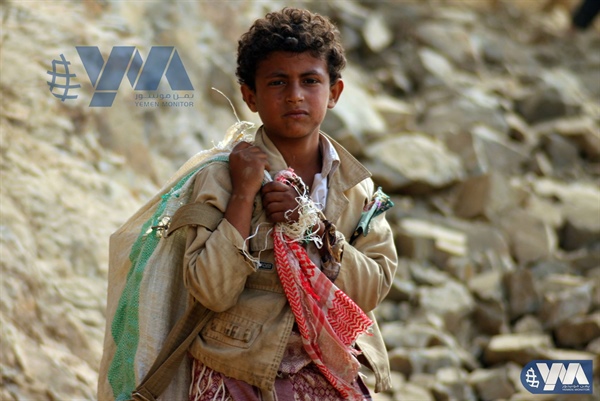
Yemen Monitor/Newsroom:
A recent study by the Nama’a Center for Humanitarian Media has revealed the measures Yemeni families take to secure their basic needs if they do not receive food aid for 30 days.
The study highlighted the extent of the economic and living challenges facing families, shedding light on the coping strategies individuals adopt in the face of escalating crises.
The study’s findings highlighted:
- Reducing the number of meals:3% of participants reported resorting to reducing the number of daily meals, reflecting families’ reliance on reducing food consumption to cope with resource shortages.
- Searching for additional sources of income:5% of participants stated that they try to secure their needs through temporary work, despite the scarcity of available opportunities due to the deteriorating economic situation.
- Selling assets and possessions:6% indicated that they are forced to sell household possessions such as furniture or appliances, a clear indication of the severe economic impact that drives families to sacrifice their possessions to secure food.
- Relying on savings:7% of participants indicated that they may resort to their personal savings, reflecting the limited financial resources of the majority of families.
- Resorting to begging: In a worrying indicator, the study showed that 4% of families may be forced to seek help from strangers, revealing that some families have reached a stage of extreme poverty and lost any source of income or support.
The study warned of the danger of rising begging rates, noting that it could lead to serious social repercussions, such as the exploitation of the most vulnerable groups, especially women and children.
The study stressed that these results reflect the harsh reality that Yemeni families are living, where ongoing crises force individuals to make fateful decisions to secure their livelihoods.
Experts also warned that relying on strategies such as reducing meals and selling possessions may negatively affect public health and the economic stability of families in the long term, stressing the need for concerned authorities and humanitarian organizations to intervene urgently to reduce the exacerbation of the crisis.




